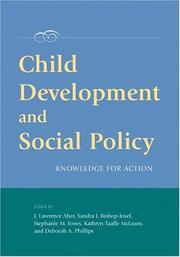| Listing 1 - 5 of 5 |
Sort by
|

ISBN: 9781139167284 9780521848541 9780521612999 0511225636 9780511225635 9780511226205 0511226209 051122298X 9780511222986 9780511224324 051122432X 1139167286 9780511224997 0511224990 9786610541485 6610541485 0521848547 0521612993 1107164699 9781107164697 1280541482 9781280541483 0511317980 9780511317989 Year: 2006 Publisher: Cambridge ; New York : Cambridge University Press,
Abstract | Keywords | Export | Availability | Bookmark
 Loading...
Loading...Choose an application
- Reference Manager
- EndNote
- RefWorks (Direct export to RefWorks)
Decades of research point to the need for a universal preschool education program in the U.S. to help give our nation's children a sound cognitive and social foundation on which to build future educational and life successes. In addition to enhanced school readiness and improved academic performance, participation in high quality preschool programs has been linked with reductions in grade retentions and school drop out rates, and cost savings associated with a diminished need for remedial educational services and justice services. This 2006 book brings together nationally renowned experts from the fields of psychology, education, economics and political science to present a compelling case for expanded access to preschool services. They describe the social, educational, and economic benefits for the nation as a whole that may result from the implementation of a universal preschool program in America, and provide guiding principles upon which such a system can best be founded.
Education, Preschool --- Early childhood education --- Health Sciences --- Psychiatry & Psychology
Book
ISBN: 1462537545 Year: 2019 Publisher: New York ; London : Guilford Press,
Abstract | Keywords | Export | Availability | Bookmark
 Loading...
Loading...Choose an application
- Reference Manager
- EndNote
- RefWorks (Direct export to RefWorks)
"Grounded in current research and theory, this practical guide gives program leaders and staff developers a roadmap for designing and implementing engaging professional development and coaching approaches. It focuses on early educator competencies essential for high-quality learning and teaching--executive functions, emotion regulation, relationship skills, and talk for learning. Illustrated with an extended vignette of an early learning center, the book highlights how addressing educators' professional needs is a pathway to children's cognitive, social-emotional, and academic growth. User-friendly features include 23 reproducible checklists, handouts, and self-study and planning tools. Purchasers get access to a Web page where they can download and print the reproducible materials in a convenient 8 1/2" x 11" size. Key Words/Subject Areas: preschoolers, PreK, kindergarten, primary grades, early childhood, programs, classrooms, school leadership, administration, coaching, professional development, professional learning communities, staff development, teacher training, educator competencies, executive functioning, executive skills, emotion regulation, social-emotional learning, classroom management, literacy, early education centers Audience: Early education program directors, principals, and administrators; staff developers, coaches, and veteran teachers in PreK-2"--
Early childhood teachers --- Early childhood education. --- In-service training
Digital
ISBN: 9781139167284 Year: 2006 Publisher: Cambridge Cambridge University Press
Abstract | Keywords | Export | Availability | Bookmark
 Loading...
Loading...Choose an application
- Reference Manager
- EndNote
- RefWorks (Direct export to RefWorks)

ISBN: 1591474256 Year: 2006 Publisher: [Place of publication not identified] American Psychological Association
Abstract | Keywords | Export | Availability | Bookmark
 Loading...
Loading...Choose an application
- Reference Manager
- EndNote
- RefWorks (Direct export to RefWorks)


ISBN: 9780195327892 Year: 2008 Publisher: New York Oxford University Press
Abstract | Keywords | Export | Availability | Bookmark
 Loading...
Loading...Choose an application
- Reference Manager
- EndNote
- RefWorks (Direct export to RefWorks)
This book examines how to improve social settings in order to foster positive youth development. Each chapter describes a theory of intervention and specific exemplars of strategies to transform settings where youth live, learn, work, and play, as a route to individual change. Chapters consider settings such as classrooms, schools, universities, out-of-school-time programs, community-based programs focused on health or youth-empowerment, programs for supplementary education for immigrant youth, and youth-organizing efforts. Other chapters examine how broader contexts such as school districts, community coalitions, and networks of youth-serving organizations can guide and support or hinder change. Because measurement of settings is critical to motivate and direct change efforts and guide social policy, chapters also describe ways of assessing key features of setting. Many chapters consider how setting can increase the representation of youth who are marginalized for reasons of race, ethnicity, immigration status, or sexual orientation and how it can improve the quality of the youth's experiences. Because changing settings requires many forms of expertise, the book's authors come from multiple disciplinary backgrounds. (Bron: website oxfordscholarship.com)
Classroom environment --- Educational sociology --- School environment --- Youth development
| Listing 1 - 5 of 5 |
Sort by
|

 Search
Search Feedback
Feedback About UniCat
About UniCat  Help
Help News
News